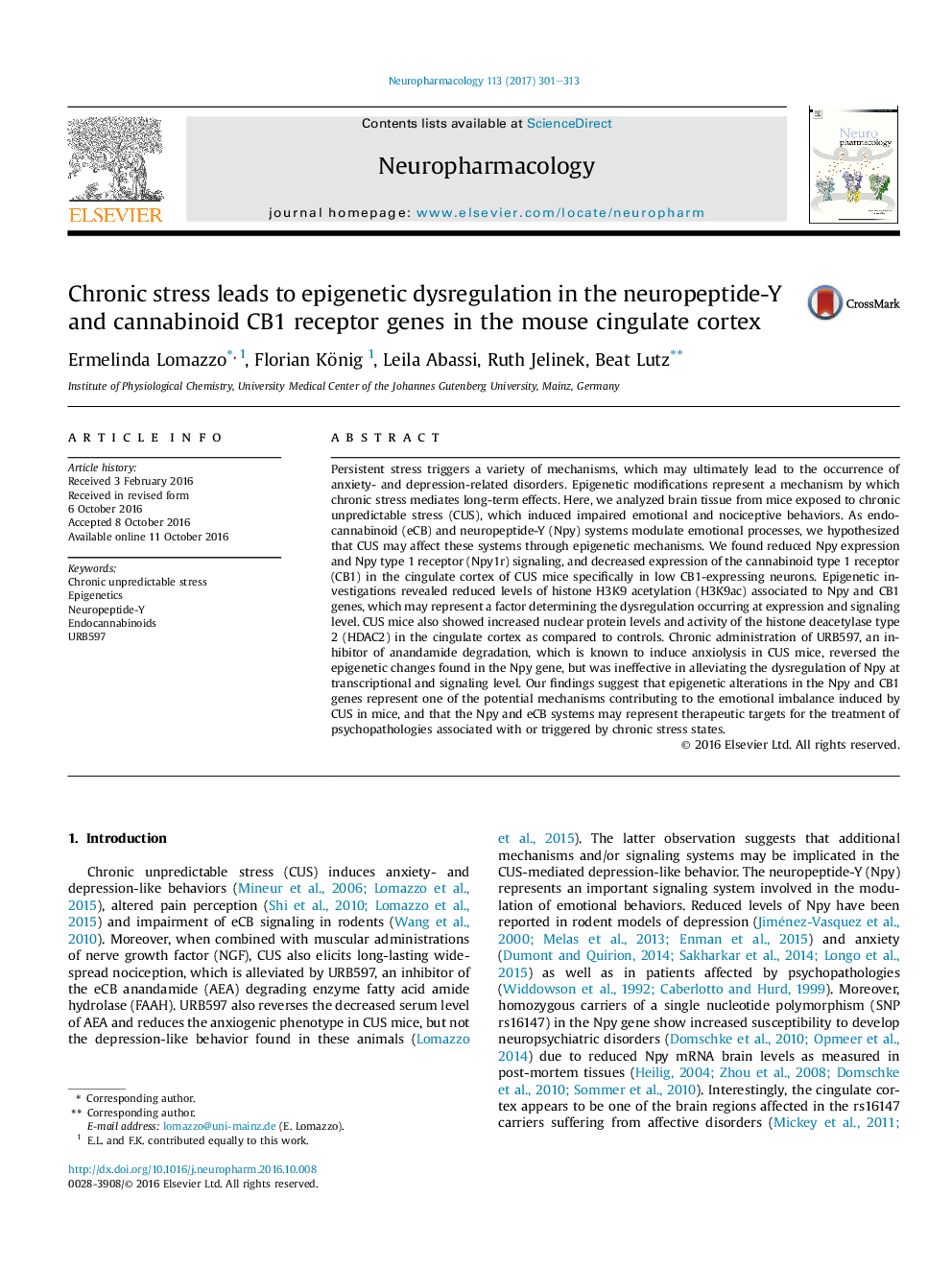| کد مقاله | کد نشریه | سال انتشار | مقاله انگلیسی | نسخه تمام متن |
|---|---|---|---|---|
| 5549152 | 1402857 | 2017 | 13 صفحه PDF | دانلود رایگان |

- Chronic stress induces epigenetic modifications in Npy and CB1 genes.
- Chronic stress alters Npy expression and Npy1r function in the cingulate cortex.
- Chronic stress alters CB1 mRNA in low CB1-expressing neurons.
- Reduced H3K9ac level may be responsible for impairments at molecular level.
- URB597 prevents the altered H3K9ac levels at the Npy gene.
Persistent stress triggers a variety of mechanisms, which may ultimately lead to the occurrence of anxiety- and depression-related disorders. Epigenetic modifications represent a mechanism by which chronic stress mediates long-term effects. Here, we analyzed brain tissue from mice exposed to chronic unpredictable stress (CUS), which induced impaired emotional and nociceptive behaviors. As endocannabinoid (eCB) and neuropeptide-Y (Npy) systems modulate emotional processes, we hypothesized that CUS may affect these systems through epigenetic mechanisms. We found reduced Npy expression and Npy type 1 receptor (Npy1r) signaling, and decreased expression of the cannabinoid type 1 receptor (CB1) in the cingulate cortex of CUS mice specifically in low CB1-expressing neurons. Epigenetic investigations revealed reduced levels of histone H3K9 acetylation (H3K9ac) associated to Npy and CB1 genes, which may represent a factor determining the dysregulation occurring at expression and signaling level. CUS mice also showed increased nuclear protein levels and activity of the histone deacetylase type 2 (HDAC2) in the cingulate cortex as compared to controls. Chronic administration of URB597, an inhibitor of anandamide degradation, which is known to induce anxiolysis in CUS mice, reversed the epigenetic changes found in the Npy gene, but was ineffective in alleviating the dysregulation of Npy at transcriptional and signaling level. Our findings suggest that epigenetic alterations in the Npy and CB1 genes represent one of the potential mechanisms contributing to the emotional imbalance induced by CUS in mice, and that the Npy and eCB systems may represent therapeutic targets for the treatment of psychopathologies associated with or triggered by chronic stress states.
Journal: Neuropharmacology - Volume 113, Part A, February 2017, Pages 301-313